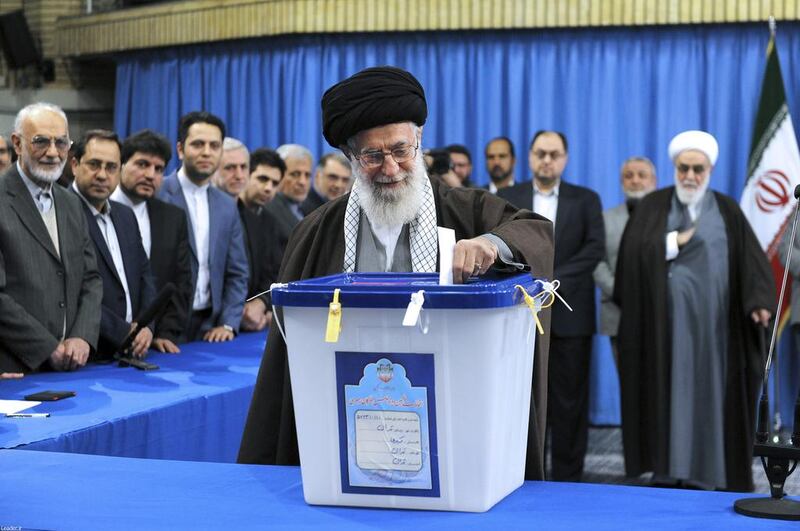Turnout was high for Iran’s elections for the 290-seat parliament and the 88-member Assembly of Experts. Millions thronged polling stations hoping to secure changes to their benefit and prevent hardliners – who oppose the nuclear deal and political engagement with the West – from winning the contest.
The reformers won at least 85 of the parliamentary seats, and their moderate allies won 73 seats of out 290. This shows that the number of hardliners has significantly decreased.
The surprising victory for reformers – particularly in Tehran, where they won all the 30 seats – will bolster Hassan Rouhani’s government and further open up the country to commerce.
However, change will happen slowly for two reasons.
First of all, none of the major political camps has a majority in the parliament.
Secondly, despite the projected victory for Mr Rouhani and reformists, other hardline institutions such as the Revolutionary Guard Corps (IRGC), the ministry of intelligence (Etela’at), the judiciary and the office of the supreme leader, Ayatollah Ali Khamenei, still have most of the control over life in Iran.
With regard to foreign policy, no candidate questioned Iran’s role in Iraq, Yemen, Syria or Lebanon. It appears that there is an unwritten agreement across Iran’s political spectrum regarding Tehran’s regional policies. In addition, not one of the political candidates criticised the supreme leader or the IRGC.
When it comes to the Iranian people’s aspiration for enhanced human rights, civil liberties, social justice and freedom of speech and assembly, it is even less likely that there will be any major changes. These areas are tightly controlled by the judiciary, the IRGC and the ministry of intelligence, and are all dominated by hardliners.
Another significant issue was the higher turnout in more affluent cities, where the electorate voted for the combined list of moderates and reformists, as opposed to the poorer areas. This issue probably reflects the fact that the lower economic classes of Iran have not yet seen the benefits of sanctions being lifted.
The role of social media was also shown to be critical. Iranian youth shared information regarding which candidate others should vote for in the same city or other provinces.
The youth vote was significant in determining the outcome because 60 per cent of the population were born after the Islamic revolution, and they are mainly disaffected and disillusioned with the revolutionary principles of hardliners.
With regard to the elections for the 88-member Assembly of Experts, prominent hardliners received an embarrassing setback. The defeat of two influential hardline clerics – Ayatollah Mohammad Yazdii, the incumbent head of the assembly, and Ayatollah Mohammad-Taghi Mesbah Yazdi, an ally of the former president Mahmoud Ahmadinejad – and the victory of the moderates will have a significant impact on selecting a moderate to be the successor to the 76-year-old Ali Khamenei. A supreme leader can lead Iran in a different direction, as the post enjoys the final say in Iran’s major foreign and domestic policies. A moderate supreme leader would inevitably favour more engagement with the West and the United States.
In closing, the Islamic Republic appears to be heading towards the moderate position of Mr Rouhani and his political allies. Nevertheless, changes will come very slowly as long as the supreme leader is alive, since hardliners still hold most of the power.
Dr Majid Rafizadeh is an Iranian-American scholar and president of the International American Council on the Middle East
On Twitter: @dr_rafizadeh





